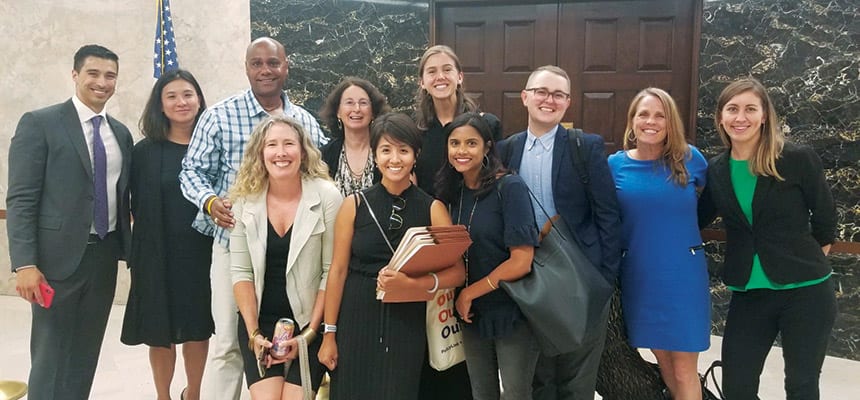
Research and ongoing advocacy from the law school’s Policy Advocacy Clinic — which reveals how fines and fees assessed within the juvenile justice system greatly harm low-income families and families of color — continue to drive major changes.
In the spring, the clinic helped persuade California to become the first state to stop intercepting tax refunds, garnishing wages, and levying bank accounts for unpaid debt (including juvenile fees) owed to state and local governments during the COVID-19 pandemic.
“Halting all this collection for everyone in California who has this kind of debt is huge,” says clinic supervising attorney Stephanie Campos-Bui ’14. “When we started working years ago on abolishing juvenile fees, I never saw this coming.”
In recent months, Riverside County, San Diego County, and Orange County became the latest in California to stop collecting juvenile fees assessed prior to a recent state bill — which the clinic played a huge role in passing — that abolished the charging of such fees.
Campos-Bui says 43 of California’s 58 counties have now relieved hundreds of thousands of families of approximately $350 million in juvenile fees, “which our research has shown to be regressive, racially discriminatory, and harmful to youth well-being.”
Clinic leaders and students are now advocating for Senate Bill 1290, pending before the California Legislature, which would end all further collection and discharge all outstanding juvenile fees.
—Sarah Weld